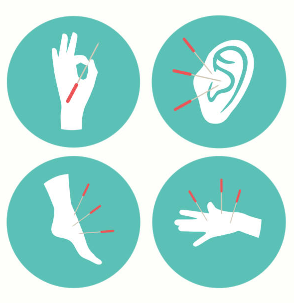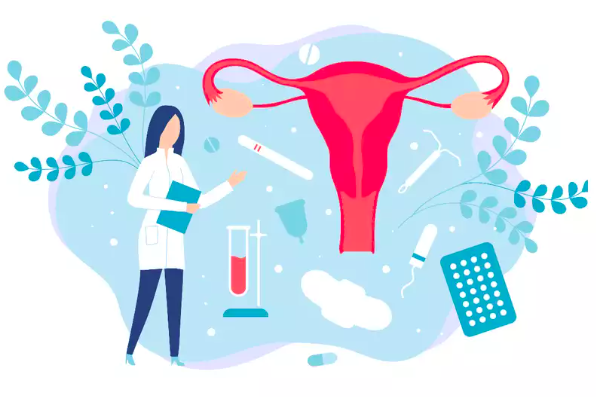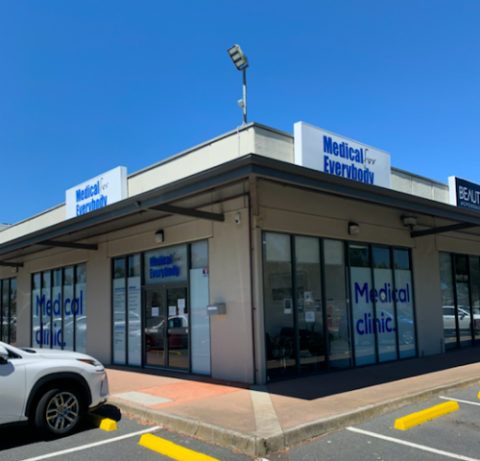
Women’s Health
Common major issues affecting Women’s Health include cancer (notably breast, bowel, lung, pancreatic and ovarian), type 2 diabetes mellitus, back pain, osteoarthritis, rheumatoid arthritis, heart disease, stroke, atrial fibrillation, chronic liver disease, chronic obstructive pulmonary disease (COPD), asthma, vaginal prolapse, iron deficiency, chronic kidney disease, dementia, migraine. Mental Health issues such as depression, anxiety, bipolar, eating disorders and alcohol use disorder.
We provide Cervical Screening Tests with our female and male doctors, as well as advice on menopause management, family planning advice, contraception advice, sexual dysfunction and troublesome urinary symptoms. Our doctors strive to be supportive and objective in the management of a woman’s physical and/or mental health issues.

Acupuncture
Common conditions that Dr Sophie Sadr at Chirnside Park, and Dr Wesley Ang in Templestowe use acupuncture to provider relief for common problems including; musculoskeletal pain, headaches, migraines, women’s health pain, allergies, anxiety, sleeping problems, smoking cessation as well as others.

Skin Checks
A Skin Check is a medical examination conducted by a General Practitioner and Practice Nurse to assess the health of your skin. Your GP may ask you questions about your medical history and any family history of skin conditions. They may also ask if you have noticed any unusual moles, growths, or changes to your skin recently. Using a digital dermatoscope, thorough and comprehensive skin checks are performed by our specialised GPs at Medical for Everybody, looking for any abnormalities or changes that could indicate a skin condition or disease.
If your GP detects any concerning moles or lesions, they may recommend further testing, such as a biopsy or an excision. If any necessary skin procedures are required, they may be completed on the day, or you may be required to book in for a follow-up appointment. Alternatively, you may be referred to a suitable specialist depending on the clinical context. Please note there is a fee for any procedures.
Overall, GP skin checks are an important way to detect skin conditions and diseases early and prevent further complications. It is recommended that everyone gets regular skin checks, especially those with a history of skin cancer or other skin conditions.
Below is the Cancer Council Australia website which provides information about skin cancer.
https://www.cancer.org.au/about-cancer/types-of-cancer/skin-cancer.html

Family Planning
We provide contraception advice (including Implanon insertion/removal) and advice on sexually transmitted infections (STI) screening/diagnosis/management
The Melbourne Sexual Health Centre provides fact sheets on common topics in Sexual Health.
https://www.mshc.org.au/SexualHealthInformation/SexualHealthFactSheets
We provide discussion on fertility, contraception and family planning.
The Family Planning Victoria Website provides information regarding sexual health as well as the various methods of contraception
https://www.fpv.org.au/resources/reproductive-and-sexual-health
Please make an appointment with one of our GPs to discuss your concerns.

Men’s Health
We provide consultations to investigate prostate issues, sexual dysfunction, testosterone deficiency, troublesome urinary symptoms and provide a safe space for men to discuss their physical and mental health issues.
http://www.healthymale.org.au/
The Victorian Better Health Channel outlines common medical issues which require more focus when it comes to the health of men – with a focus on heart disease, skin checks, dental care, diabetes, osteoporosis and bowel/prostate cancer screening.
https://www.betterhealth.vic.gov.au/health/healthyliving/health-checks-for-men
Health Assessments
Health Assessments are initiatives under Medicare which aim to support early identification of health conditions and risk factors, as well as prevention of chronic disease in populations considered most at risk. These assessments help patients and their GPS manage their health and plan for the future.
Health Assessments includes information collection, referring for investigations as required, an overall assessment, and initiating further appropriate interventions. They are typically completed by the patient’s regular GP, with other health professionals contributing to the assessment, such as a Practice Nurse. The appointment may vary in length depending on the complexity of each patient’s health needs.
Eligible populations for a Health Assessment are identified below:
- 40-49 yrs Type 2 Diabetes Risk Assessment who are high risk (as per the AUSDRISK score)
- 45-49 yrs at risk of Chronic Disease
- Over 75 yrs Health Assessment
- People with an Intellectual Disability
- Over 30 yrs Heart Health Check
- Refugee Health assessment
- Aboriginal and Torres Strait Island Health Assessment
If you are unsure if you qualify, you can discuss this with your usual GP!
Home Medicine Reviews
A Home Medicines Review (HMR), also known as a Domiciliary Medication Management Review (DMMR) aims to maximise the benefits of a patient’s medication regimen, and prevent medication-related problems. This type of review is a team-based approach involving the patient’s regular GP and preferred community pharmacy or accredited pharmacist. Patients who are likely to benefit from such a review include those with co-morbidities, taking multiple medications, or having difficulty managing their medicines.
Eligible patients for a HMR include (but not limited to) those who currently take five or more regular medications, or take more than 12 doses of medication per day, 0r have had significant changes made to medication treatment regimen in the last three months. Patients with difficult managing their medicines due to cognitive or physical impairments, or those recently discharged from a hospital or specialist facility are also eligible.
These medication reviews can be conducted every 12 months.
Chronic Disease Management Plans
A Chronic Disease Management Plan is a comprehensive, coordinated approach to managing chronic health conditions. Chronic diseases are conditions that have lasted for 6 months or will last for at least 6 months, such as diabetes, heart disease, and asthma. These plans are designed to help you manage your condition and improve your quality of life. It typically involves working with your healthcare team, which will include your doctor, nurse, pharmacist, and other healthcare professionals.
Your healthcare team will work with you to develop a plan that is tailored to your specific needs and goals. This may involve setting goals for managing your symptoms, such as reducing your blood sugar levels or managing your asthma symptoms, as well as making lifestyle changes, such as improving your diet and increasing physical activity. The plan may also include regular check-ups and monitoring of your condition, as well as education and support to help you better understand your condition and how to manage it.
If you have a chronic condition, a chronic disease management plan can be an effective way to improve your overall health and well-being. It can help you stay on top of your symptoms, prevent complications, and reduce the need for emergency care.
Overall, a chronic disease management plan is an important tool for managing chronic health conditions and improving your quality of life. It is recommended that anyone with a chronic condition work with their healthcare team to develop a personalized plan that meets their specific needs and goals.
Iron Infusions
Iron infusions are a medical treatment that is used to increase the levels of iron in the body. Iron is an essential mineral that plays a crucial role in producing haemoglobin, which is responsible for carrying oxygen in the blood. When a person has low iron levels, they may experience symptoms such as: fatigue, weakness, and shortness of breath. Iron infusions are typically used when oral iron supplements are not effective or are not well-tolerated. They are also used when a person needs to increase their iron levels quickly or when they are unable to absorb iron from food.
During an iron infusion, your GP with assistance from a Practice Nurse will inject a liquid form of iron directly into a vein using an IV (intravenous) drip. The iron is usually mixed with a saline solution or other fluids and is administered slowly over a period of time. The length of time and the amount of iron administered will depend on the person’s individual needs and the severity of their iron deficiency.
Iron infusions are generally considered safe, but they can sometimes cause side effects. such as: nausea, vomiting, headache, or dizziness. In rare cases, more serious side effects such as an allergic reaction or anaphylaxis may occur.
Overall, iron infusions can be an effective treatment for increasing iron levels in the body and improving symptoms of iron deficiency. If you think you may have low iron levels, or are experiencing symptoms of iron deficiency, it is important to speak to your GP about your treatment options.
Doctors Available At:
Phone: 03 8727 0000
Fax: 03 8727 0099
Shop 3, 282 Maroondah Highway,
Chirnside Park, 3116
Phone: 03 9590 9955
Fax: 03 9590 9949
Shop 15, 11 Narelle Drive
Aspendale Gardens, 3195


